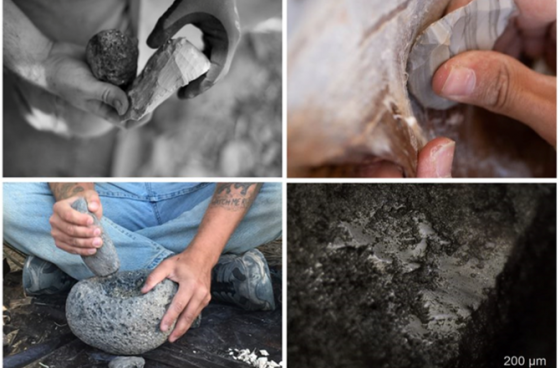Stone Tool Technology
Kind of Event
- Workshop
Country
- Denmark
Era(s)
Stone Tool Technology: Concepts, Techniques and Methods
An international summer school at the University of Copenhagen from 27 July – 7 August 2020
This summer school will provide students with a well-rounded introduction to the study of lithic artefacts. Starting with raw material procurement and knapping the course will introduce students to the basics of flint knapping, and how to recognize signatures of different techniques used in the past. We will then cover tool use and use-wear analysis, and discuss concepts of data recording and data analysis.
The course is aimed at any students who wish to gain a better understanding of lithic production and recording techniques, and students with an interest in prehistoric technologies more generally. Part of this course will be taught away from campus where flint knapping practicals and experiments will take place. The second part is based in the material culture laboratory and class room at the main campus, where we will discuss recording techniques and other aspects of lithic analysis.
This intensive two-week course will not only introduce students to the basic concepts of stone tool analysis, as well as to some of the newer imaging and statistical techniques, but also provide them with hands-on experience in handling and analyzing stone tools, knapping, as well as micro-wear analysis.
Learning Outcomes
- Knowledge of key concepts in stone tool analysis
- Knowledge of the basic principles of stone tool production and use
- Gain experience in stone tool production
- Develop skills in stone tool analyses, including techno-typological analysis, as well as micro-wear analysis
- Introduction to image and statistical analysis of stone tools
- Lithic report writing
- Critical analysis of stone tool analyses (MA level)
Application deadlines
- 1 April: First round applications
- 1 June: Second round applications (after availability)
See website for:
- Admission requirements and application procedure
- Eligibility and workload
- Assessment and credit
- Costs
- Accommodation
- Insurance

